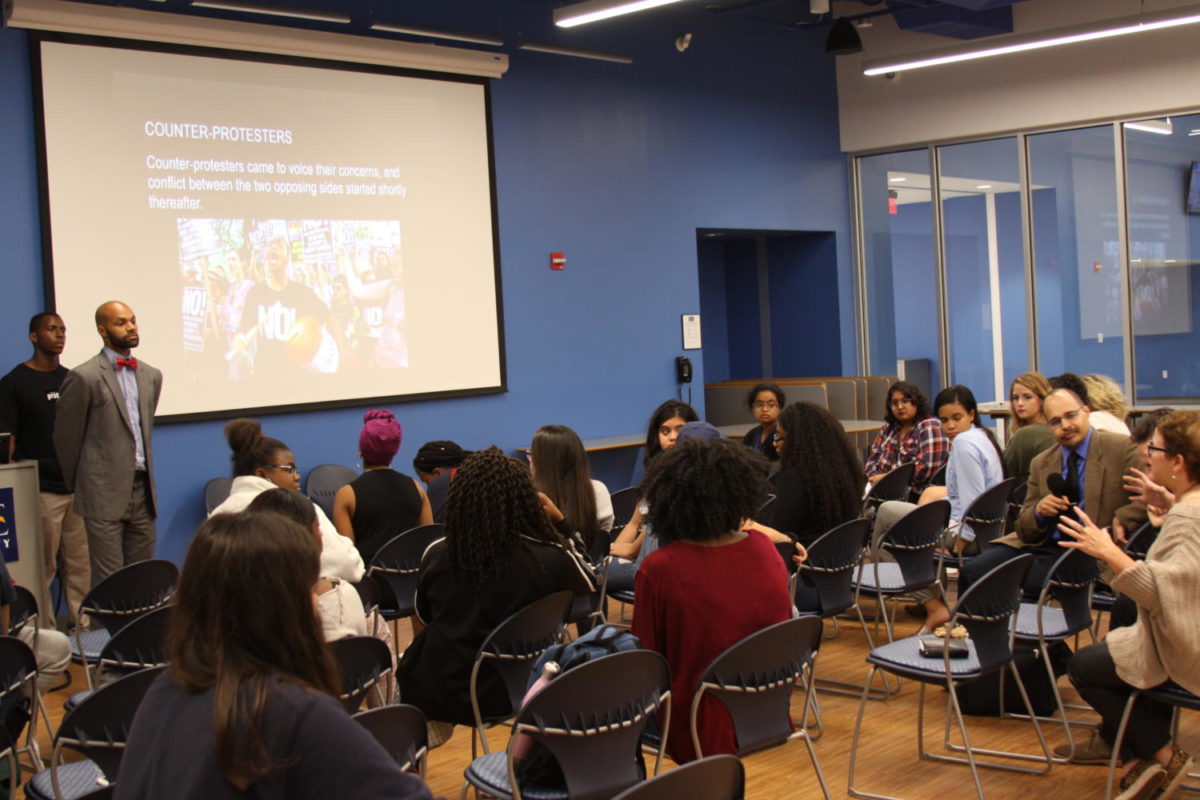Charlottesville, Race, and Pace
Students and professors alike gathered in the Kessel multipurpose room on Thursday night for a discussion on Charlottesville, organized by Malcolm Reynolds, the Vice President of Unity and Social Justice.
The presentation opened with a brief explanation of why confederate statues are significant and why having those statues up can have some underlying racism and the facts on what happened at Charlottesville.
After this brief explanation, Cornell Craig, the Director for Multicultural Affairs and Diversity Programs, passed around the microphone to other students so that they can share how they felt about the situation when they first heard about it.
Several students shared that they were angry because of the use of hateful rhetoric and stated they felt that this sense of aggression was caused by the president. Others were afraid for their lives and because they didn’t realize how far racism would progress.
From discussion of Antifa and white supremacists to the presidency and its effects on the current social climate, there was a lot to talk about regarding Charlottesville, however the input of attendees on larger ideas was what really shined here.
Craig, after posing the question of “What does make America Great Again mean to you?” asked whether “the again” of the ‘great’ yesteryear of America was in fact these violent riots, which seemed to plague the U.S. in years past.
“It’s something people don’t typically want to talk about” said Ryanne Beatty, student at Pace, of the discussion about violent clashes regarding race and history of America.
Several students raised concerns of feeling helpless and that there was nothing that they could do in order to stop the political climate from progressing to a point where they feel extremely uncomfortable.
But according to Tyler Kalahar, the Program Coordinator at Pace, there are many ways in which students can get involved and prevent this from happening.
Citing a bill that would protect undocumented immigrants that was vetoed by Westchester Executive, Rob Astorino, Kalahar emphasized the importance of participation at the local and state level, rather than at just a national level every 4 years.
“I think sometimes Pace students don’t understand how they can impact the political climate and the social climate outside of Pace,” said Craig. “These conversations can help students to step up, speak out, and be politically active.”
Several students at the end of the discussion offered alternative ways on campus for students to get active in the political climate and have these discussions. Some of the alternative ways included participating in food drives, joining Black Student Union, and participating in discussions.
“I am very politically conscious and I think having these discussions and really getting people to talk about it can help our situation,” said Natalie Hernandez, sophomore at Pace.
Your donation supports independent, student-run journalism at Pace University. Support the Pace Chronicle to help cover publishing costs.

